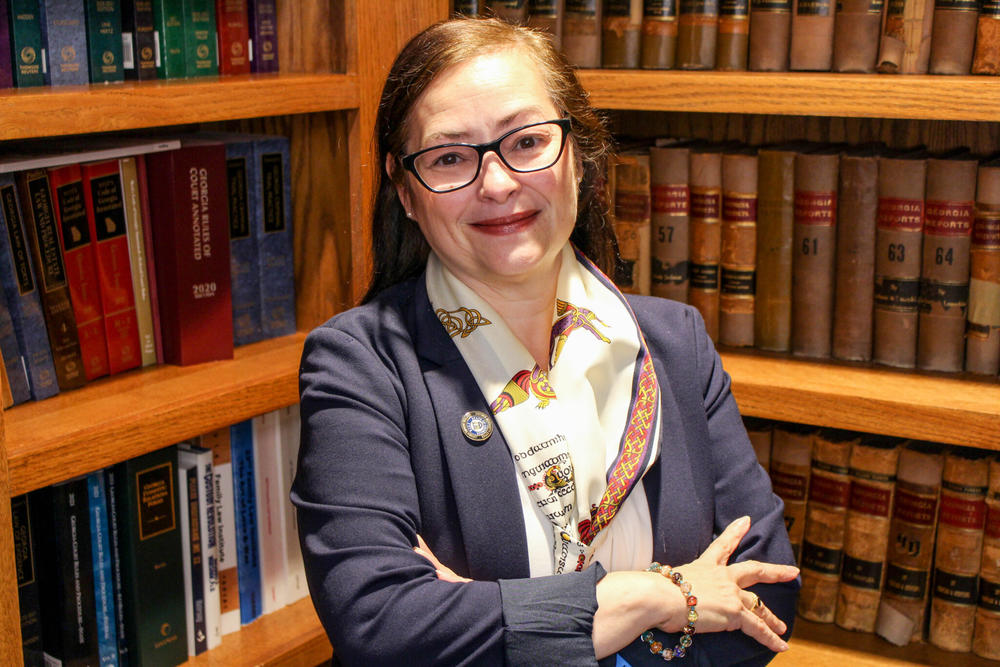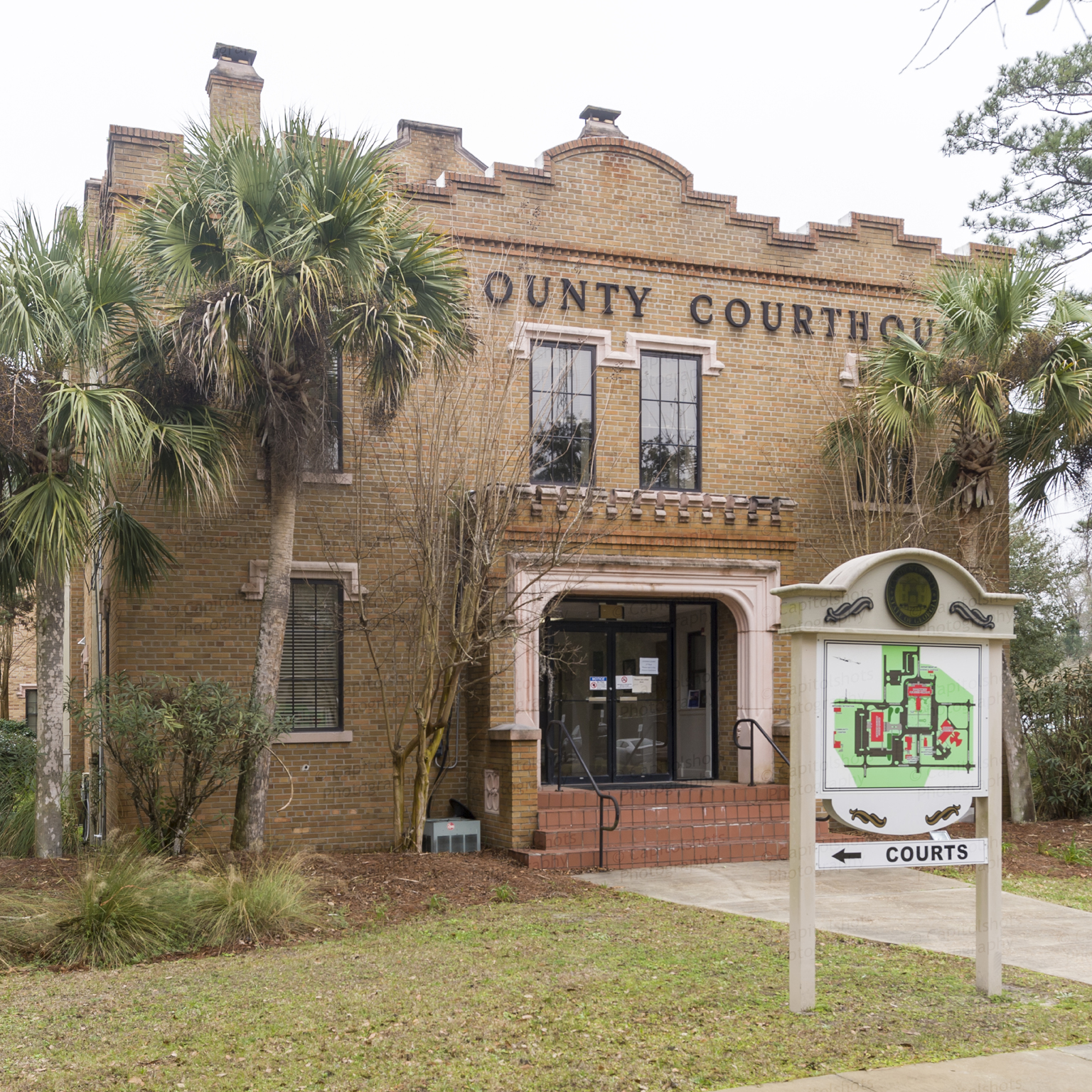Georgia Supreme Court Weighs Open Records Law for District Attorneys
The Georgia Supreme Court is set to rule in the coming months on Athens-Clarke District Attorney Deborah Gonzalez’s assertion that top prosecutors are exempt from the state’s open records laws. This issue gained attention after the justices heard arguments on Tuesday, with Gonzalez claiming that the trial court overlooked a constitutional provision when it denied her motion to dismiss an open records complaint filed by local resident Jarrod Miller last year.
Background of the Case
Gonzalez’s appeal follows similar arguments made by Fulton County District Attorney Fani Willis, who faced an open records complaint related to the 2020 presidential election interference case involving Donald Trump and his Republican supporters. Gonzalez argues that, despite her office being understaffed, attorney Kevin Epps has persistently requested public records on Miller’s behalf since she took office in January 2021. Epps has submitted over 50 requests in just three months of 2023, seeking records that include two years of communication concerning her office’s cases, staff training related to University of Georgia football games, and Zoom meetings.
Allegations of Delayed Responses
Miller contends that the Athens-Clarke DA’s office failed to process numerous records in a timely manner. He also alleges that Gonzalez instructed a staff member to delete text messages related to an open records request. Miller argues that the Georgia Supreme Court has never ruled that the open records act does not apply to judicial branch officials.
Gonzalez’s attorney, Derek Bauer, defended the DA’s position on Tuesday, asserting that the General Assembly lacks the authority to regulate public access to the DA’s records; only the state Supreme Court holds that power. Bauer also claimed that Miller cannot sue the district attorney because he did not submit the open records requests listed in the complaint, thus failing to demonstrate any injury resulting from the DA’s inaction.
Legal Arguments Presented
Bauer further argued that the constitutional immunity of district attorneys protects them from civil penalties when a private citizen files a lawsuit to enforce the open records act. He stated, “We say no based on settled principles of constitutional standing, and Georgia’s rule that every action must be brought by the real party in interest and not a proxy plaintiff.”
During the hearing, justices challenged Bauer’s reasoning. Presiding Justice Nels S.D. Peterson pointed out that Georgians have had the legal right to petition a court for nearly two centuries to compel government officials to perform their duties. Peterson questioned Bauer’s assertion that a Georgia resident lacks the legal standing to compel a district attorney to provide requested documents.
The Importance of Genuine Requests
Bauer emphasized the necessity of making an open records request from a genuine interested party. He argued that the law requires the request to come from someone directly affected by the outcome. “Before any legal duty can attach in the open records act, there has to be a request,” Bauer stated. “And that necessitates that the request be made by the actual party in interest. No citizen can enforce that.”
Justice Sarah Hawkins Warren also probed Bauer’s claim, noting that a lawyer could file an open records request independently. “Why does that destroy the ability to do it through this vehicle?” she asked.
Bauer responded that if anyone could enforce someone else’s request, it would lead to a “race to the courthouse” for access to government documents. He explained, “I typically represent newsrooms that frequently use the open records act to gather information. If Channel 2 makes a request, and Channel 11 learns about it, they could rush to enforce someone else’s request first.”
Broader Implications
Justice Andrew A. Pinson highlighted that this case concerns enforcing a public right, contrasting it with private rights cases. Bauer maintained that the separation of powers between state government branches shields a DA’s office from being sued for violating public records rights. While most state agencies must comply with open records laws, Bauer argued that district attorneys, as constitutionally elected officials, enjoy protection.
Chief Justice Michael P. Boggs noted that the court has determined judicial power rests solely with the court and not with local prosecutors. He asked, “How do we extrapolate from that that a DA, under any circumstances, is exercising judicial powers?”
Context of Political Pressure
Gonzalez and Willis have faced significant scrutiny from Republican lawmakers in recent years. Legislators established a new district attorney oversight commission with the authority to remove prosecutors who fail to prosecute specific crimes or perform their duties. Gonzalez has drawn criticism for her policy of not prosecuting minor marijuana possession or abortion cases.
Willis has condemned what she describes as a “witch hunt” against her, defending her investigation into Trump and his co-defendants for attempting to overturn the 2020 presidential election results in Georgia and other states.
Conclusion and Next Steps
The conflict continues as the Fulton DA’s office engages in an open records battle with the far-right America First Legal. This group filed a complaint against Willis for denying records related to communications with the Biden White House and the U.S. Justice Department.
Miller’s court filing argues that the Georgia Supreme Court has never explicitly stated that all public officials and judicial branch offices are exempt from the open records act. He asserts that district attorneys are only immune from litigation involving private rights related to their prosecutorial duties. As a community stakeholder, Miller believes he has the authority to enforce public records law in Athens-Clarke.
“When (Gonzalez) eventually gets around to this central question, she first deflects by noting that the District Attorney herself is not an ‘agency,’” the legal foundation’s brief states. “Of course not — her office is. The district attorney is the alleged custodian of her office’s public records.”




